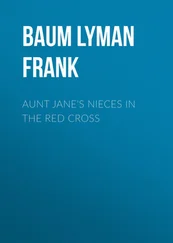Clara Barton - A Story of the Red Cross; Glimpses of Field Work
Здесь есть возможность читать онлайн «Clara Barton - A Story of the Red Cross; Glimpses of Field Work» — ознакомительный отрывок электронной книги совершенно бесплатно, а после прочтения отрывка купить полную версию. В некоторых случаях можно слушать аудио, скачать через торрент в формате fb2 и присутствует краткое содержание. Жанр: foreign_antique, foreign_prose, на английском языке. Описание произведения, (предисловие) а так же отзывы посетителей доступны на портале библиотеки ЛибКат.
- Название:A Story of the Red Cross; Glimpses of Field Work
- Автор:
- Жанр:
- Год:неизвестен
- ISBN:нет данных
- Рейтинг книги:4 / 5. Голосов: 1
-
Избранное:Добавить в избранное
- Отзывы:
-
Ваша оценка:
- 80
- 1
- 2
- 3
- 4
- 5
A Story of the Red Cross; Glimpses of Field Work: краткое содержание, описание и аннотация
Предлагаем к чтению аннотацию, описание, краткое содержание или предисловие (зависит от того, что написал сам автор книги «A Story of the Red Cross; Glimpses of Field Work»). Если вы не нашли необходимую информацию о книге — напишите в комментариях, мы постараемся отыскать её.
A Story of the Red Cross; Glimpses of Field Work — читать онлайн ознакомительный отрывок
Ниже представлен текст книги, разбитый по страницам. Система сохранения места последней прочитанной страницы, позволяет с удобством читать онлайн бесплатно книгу «A Story of the Red Cross; Glimpses of Field Work», без необходимости каждый раз заново искать на чём Вы остановились. Поставьте закладку, и сможете в любой момент перейти на страницу, на которой закончили чтение.
Интервал:
Закладка:
Clara Barton
A Story of the Red Cross; Glimpses of Field Work
PREFACE
Since the foundation of the Red Cross in America, many direful calamities have afflicted the country. In each of these visitations the Red Cross has acted in some degree as the Almoner – the distributer and organizer – of the bountiful measures of relief that have been poured out by the American people.
Its work has been accomplished quietly and without ostentation. All the relief has been administered – not as charity – but as God-sent succor to our brothers and sisters who have been overwhelmed by some mighty convulsion of the forces of nature.
The wreckage has been cleared away, the stricken people have been wisely, tenderly, and calmly guided out of panic and despair on to the road of self-help and cooperative effort to restore their shattered homes and broken fortunes; and then the Red Cross has retired as quietly as it came, and few, outside of the people immediately concerned, have realized the beneficent powers of help and healing that have fallen like a benediction upon the stricken wherever that sacred symbol of humanity has made its way.
It is my thought that a brief account of the work of the Red Cross during the past twenty-five years will be of interest to the American people. In a volume of this size it must of necessity be but a brief outline, sufficient, however, to convey a clear impression of what the Red Cross really means to every individual in this great country of ours.
To the thousands of American men and women whose generous bounty has made the work of the Red Cross possible, to the stricken and distressed who because of it have been helped back to life and hope, and to all the friends of the great, universal humanity which it typifies, this small book is lovingly dedicated.
Clara Barton.Glen Echo, Maryland,
May 15, 1904.
I
EARLY HISTORY
1880-1884
It was a little blue-eyed girl of ten who sat on a low hassock at my feet, slowly drawing the soft auburn curls between her fingers, when, suddenly lifting her head and looking me earnestly in the face, she exclaimed: "What is the Red Cross? Please tell me about it; I can not understand it."
There was a pleading earnestness in the tone not to be resisted, and laying down my pen I commenced to explain to her the principles, history, and uses of the Red Cross. She listened anxiously, the pretty brow knitted; she seemed more and more perplexed, until, as if a light had broken over her, she exclaimed, half impatiently:
"Not that – not that, tell me something it does – it and you, I can understand it better then."
A light had broken over me. It was a story the child wanted to illustrate the principle and bring it home to her. A story she must have.
In a half hour she felt that she knew it all and was an ardent devotee even of its principles. But she had given me more than I had given her. Here was food for thought.
For twenty-five years I had labored to explain the principles and uses of the Red Cross; had written enough for a modest library of what it was and what it meant, but, lest I seem egotistical, not a page of what it did. The child had given me an idea that I would for once put into practice, and write a few pages of what the Red Cross had done, leaving principles to present themselves.
I will commence even back of itself.
Forty years ago, before most of you were born, a great war had been fought in America, in which thousands died from battle and hardship, and thousands more still left alive were worn out in the untried and unsystematized efforts at relief that had been made through nearly five years of continuous war. Of these latter, many were women who dragged out weary lives in their own homes, some went to hospitals and retreats for rest and care, and some were sent abroad. One of these latter I knew personally, for, as Patrick would say, "It was me-self."
To me it seemed a hard sentence that our physicians imposed. I had grown to love the country we had so toiled for, and did not want to leave it. Its very woes had made it dear to me. It had quiet once more, and a peace that was not all a peace. It had its early soldier homes, its fast-filling cemeteries, and the tender memory of a martyred President resting over us like a pall. These had come to seem like a heritage to me, and in my weakness I clung to them. Still, the order was obeyed and I went.
Then followed travels in strange and foreign lands, other wars, illness and suffering of my own, until eleven years later I came almost a stranger again to our Government with another work, which I believed to be for its good and the good of our people.
This time I brought the idea of the treaty of Geneva, asking our Government, at the request of other Governments, to examine and to unite with it, if found desirable. This effort with the Government covers five years of hard, continuous labor, during which was sought the aid of friends known in other years. At the end of this time, by advice of our second martyred President and three members of his historic cabinet – James G. Blaine, William Windom, and Robert T. Lincoln – a national society was formed, known as the Association of the American Red Cross, and, by desire and nomination of President Garfield, I was made its president, and requested to name my officers.
The association was formed during the winter of 1880-'81, with the view on the part of President Garfield of facilitating the adoption of the treaty which he would name in his next message, which message was never written.
Before the message, he, too, had joined the martyred ranks, and his gentle successor, Arthur, filled his chair and kept his promise, and through action of his own executive department the treaty was adopted; indorsed by action of the Senate; proclaimed by the President to our people; later ratified by the International Powers in the Congress of Berne, with the pledge to render relief to unfortunate victims of war, and the privilege, by my request, of rendering similar relief to the victims of great national calamities or disasters.
All this had been accomplished by the kindly help of a few personal friends, tireless and unrewarded, and while the news of the accession of the Government of the United States, to the treaty of Geneva, lit bonfires that night (for I cabled it by their request) in the streets of Switzerland, France, Germany, and Spain, a little four-line paragraph in the congressional doings of the day in the Evening Star , of Washington, alone announced to the people of America that an international treaty had been added to their rolls.
No personal distinction had been bestowed, no one honored, no one politically advanced, no money of the Government expended, and, like other things of like nature and history, it was left in obscurity to make its own way and live its own hard life.
Thus the spring of 1882 found us – a few people, tired and weak, with five years of costly service, a treaty gained, with no fund, no war nor prospect of any, and no helpful connection with or acknowledgment by the Government.
Soon the news of "Half the State of Michigan on Fire" called us to action on our own laws of civil relief. A little draft on the purse of the new, inexperienced president of the association paved the way for an agent to go to the field. Others generously joined, all reported to our friend and advocate, Senator Omar D. Conger, of Michigan. Some supplies were sent, a society or two formed to provide and forward them. The agents remained until the suffering was relieved, and thus the first field relief work of which we have any record in the United States was commenced.
Читать дальшеИнтервал:
Закладка:
Похожие книги на «A Story of the Red Cross; Glimpses of Field Work»
Представляем Вашему вниманию похожие книги на «A Story of the Red Cross; Glimpses of Field Work» списком для выбора. Мы отобрали схожую по названию и смыслу литературу в надежде предоставить читателям больше вариантов отыскать новые, интересные, ещё непрочитанные произведения.
Обсуждение, отзывы о книге «A Story of the Red Cross; Glimpses of Field Work» и просто собственные мнения читателей. Оставьте ваши комментарии, напишите, что Вы думаете о произведении, его смысле или главных героях. Укажите что конкретно понравилось, а что нет, и почему Вы так считаете.












